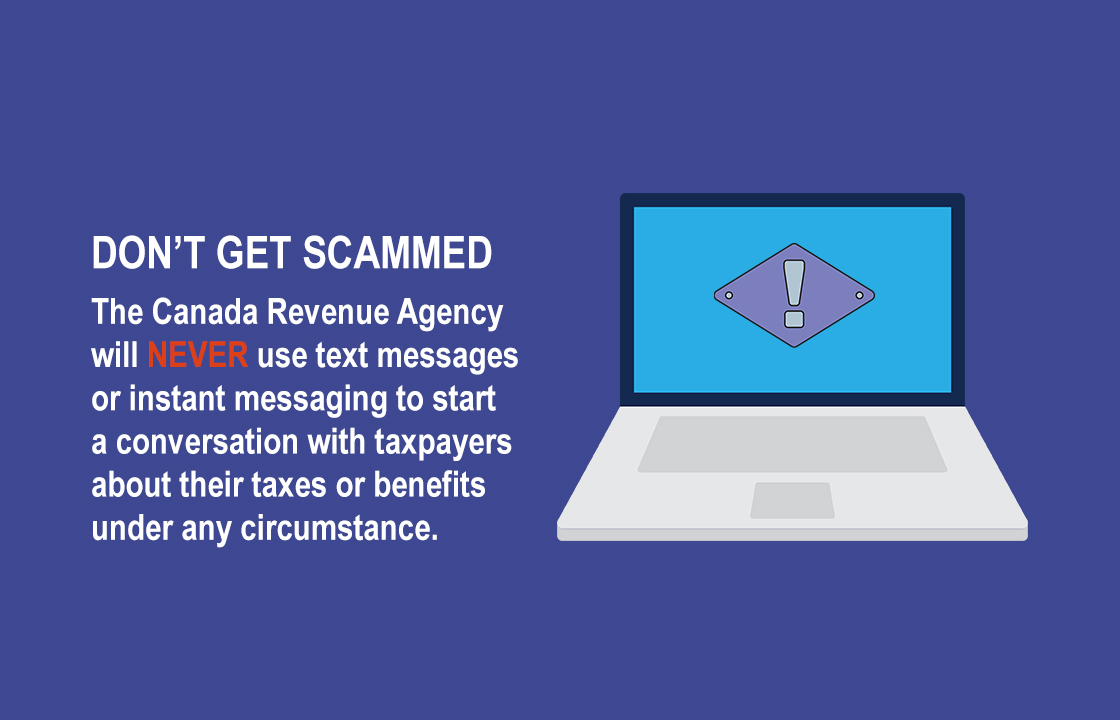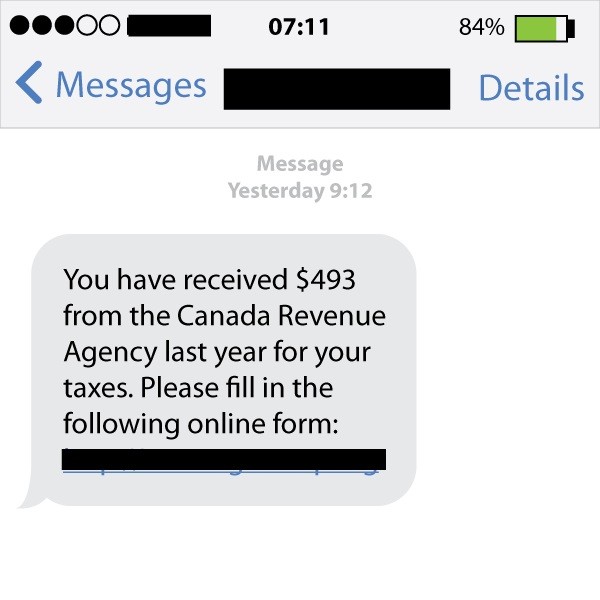Article
During the income tax filing season, scammers pose as representatives of the Canada Revenue Agency (CRA) in an attempt to trick you into sending payment for fictious "debts" or into providing sensitive personal information that they can use to commit fraud.
Scammers might send you convincing, and often threatening, messages by text, phone call or email such as:
- “Your tax refund is now available. Click here to receive your payment.”
- “You owe money to the CRA. We will send your file to a collection agency. Contact us now.”
- “You have a refund of $750 this year. Click here to claim it. Please fill in the online form here.”
How to spot tax season scams

There are often red flags that the communication is a scam:
- Does the call or voicemail make threats about debt that you owe the CRA and ask for payments in bitcoin or gift cards?
- Does the email, call or text convey a sense of urgency or a warning that they’ll contact police if you don’t reply?
- Does the email or text ask you to click on a link and verify your identity by entering personal information into an online form so you can receive a refund or benefit payment?
The CRA has information on its website including a scam alert page about how to verify if it is the CRA that is legitimately trying to contact you.

The CRA will never:
- send an email with a link asking you to divulge personal or financial information,
- send you an email or a text with a link to your refund,
- call you and threaten you with arrest or that they will send police,
- demand you pay by Interac e-transfer, bitcoin, prepaid credit card or gift cards,
The CRA will never use texts or instant messages to start a conversation with taxpayers about their taxes or benefits under any circumstance.
What to do if you think you might be a victim of fraud
If you receive a call saying you owe money to the CRA, contact them directly or check your online CRA account. If you believe you have mistakenly provided your financial information to a scammer, contact your financial institution immediately.
Get Cyber Safe is Canada’s national public awareness campaign created to inform Canadians about cyber security and the simple steps they can take to help protect themselves online. Its website has advice and additional tips on what to do if you are a victim of a phishing scam, as well as simple steps you can do to secure your digital life, including your accounts and devices.
Additional Resources
For information on common Government of Canada-related scams and to learn what to expect if the government contacts you, visit Canada.ca/be-scam-smart.
This infographic outlines the simple steps you can take to protect yourself from identify and financial theft:
